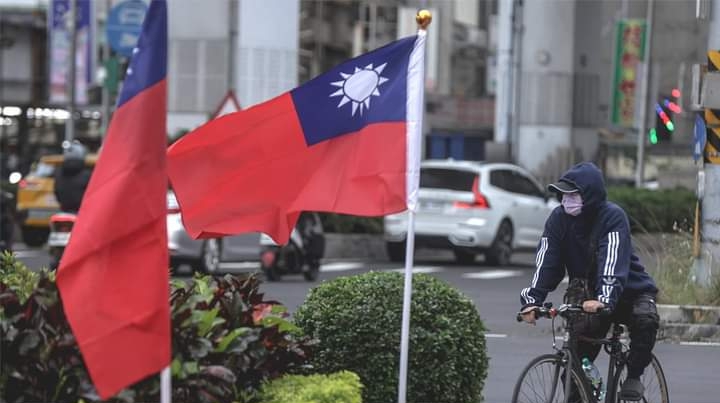China’s national security ministry made a bold accusation on Monday, claiming that a Taiwan military-backed hacking group known as Anonymous 64 has been orchestrating cyberattacks on various targets within China. The Chinese government has urged its citizens to report instances of what it described as “anti-propaganda sabotage.”
According to a detailed blog post from the ministry, Anonymous 64 has allegedly sought to undermine China’s political system by attempting to infiltrate critical digital platforms across the mainland. The ministry accused the group of spreading disinformation and broadcasting content aimed at denigrating major Chinese policies. Their targets have included websites, outdoor screens, and network television stations. Beijing described these actions as deliberate attempts to tarnish China’s global image, framing them as part of a broader cyber warfare strategy led by Taiwan.
The accusation comes at a time of growing tensions between China and Taiwan, as both sides continue to exchange diplomatic blows. For years, China has sought to assert sovereignty over Taiwan, viewing the self-governed island as a breakaway province. In response, Taiwan has remained firm in its stance of self-governance, backed by significant international support. While both nations have clashed on military and political fronts, the cyber realm has increasingly become a key battleground in this ongoing struggle.
Taiwan, however, swiftly denied the allegations. In a statement released by the Taiwanese defense ministry, officials called China’s accusations baseless and pointed the finger back at Beijing. “China is the real disturber of peace with its continued cyberattacks and military harassment,” Taiwan’s defense ministry stated. They accused Chinese cyber groups of repeatedly launching attacks aimed at destabilizing the island’s digital infrastructure and spreading online disinformation.
This exchange of accusations is not the first of its kind. For years, both China and Taiwan have traded blame over cyber intrusions, with each accusing the other of waging cyber warfare to gain political and strategic advantages. Taiwan frequently accuses Chinese state-sponsored hacking groups of attempting to infiltrate its government, media, and private sectors, often seeking to disrupt critical services or steal sensitive information. In contrast, China portrays Taiwan’s cyber capabilities as part of a coordinated effort to undermine its sovereignty and stoke unrest on the mainland.
China’s latest claims underscore the growing complexity of this conflict, which has extended beyond traditional military threats to include the digital and cyber domains. Analysts suggest that the activities of groups like Anonymous 64 may be part of a larger effort to engage in information warfare, influencing public perception on both sides of the Taiwan Strait. By spreading disinformation or launching attacks on key digital platforms, such groups seek to disrupt normal communication channels and amplify political tensions.
Meanwhile, China has intensified both its political and military pressure on Taiwan over the last five years, sending warplanes near the island and conducting military drills in the Taiwan Strait. These efforts are widely seen as an attempt to coerce Taiwan into accepting Beijing’s claims of sovereignty, a move that Taiwan continues to resist.
In response to these accusations, China has called on its citizens to remain vigilant and report any signs of what it labels as “anti-propaganda sabotage.” The call is part of a broader campaign by Beijing to tighten its grip on information control within the country, as concerns grow over the spread of politically sensitive content from external sources.
The cyber conflict between China and Taiwan is unlikely to abate anytime soon, as both nations continue to leverage their technological capabilities in an increasingly digitalized global environment. For now, the mutual accusations only serve to deepen the divide between the two sides, fueling a conflict that extends far beyond the physical and political realms.
As cyber warfare becomes an increasingly prominent tool in geopolitical conflicts, the world will be watching closely to see how China and Taiwan navigate the treacherous waters of digital confrontation.




